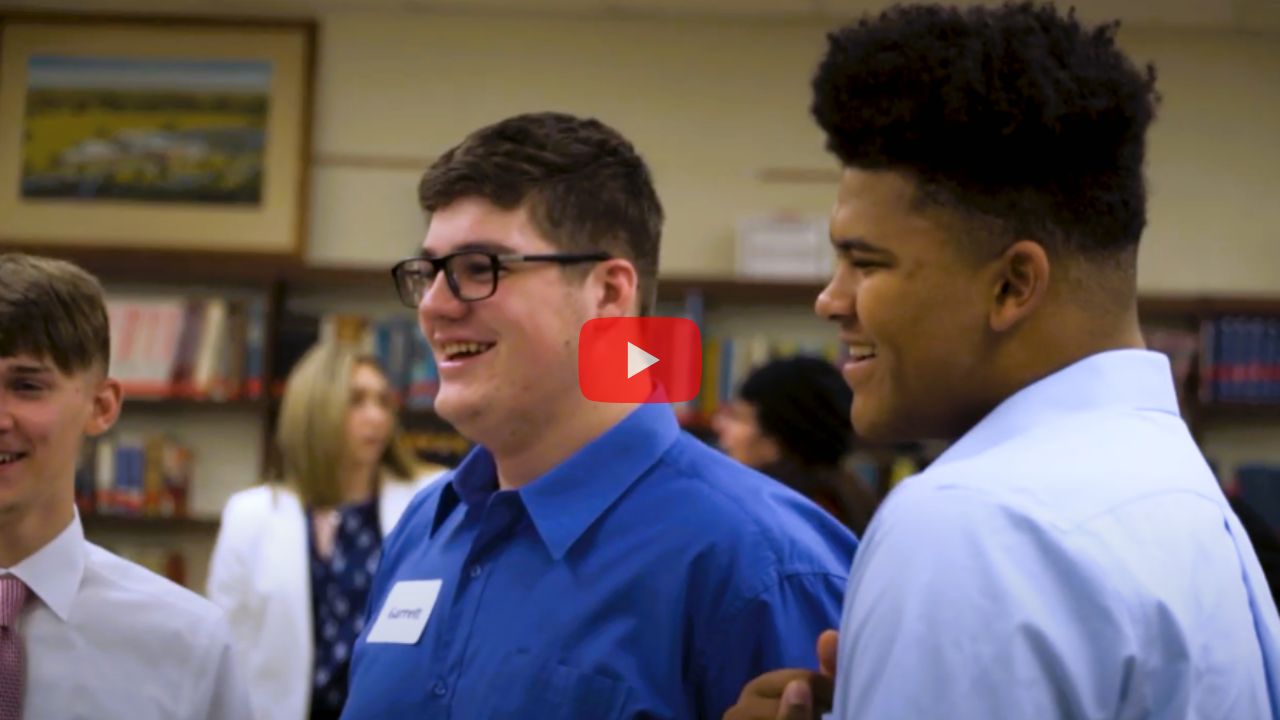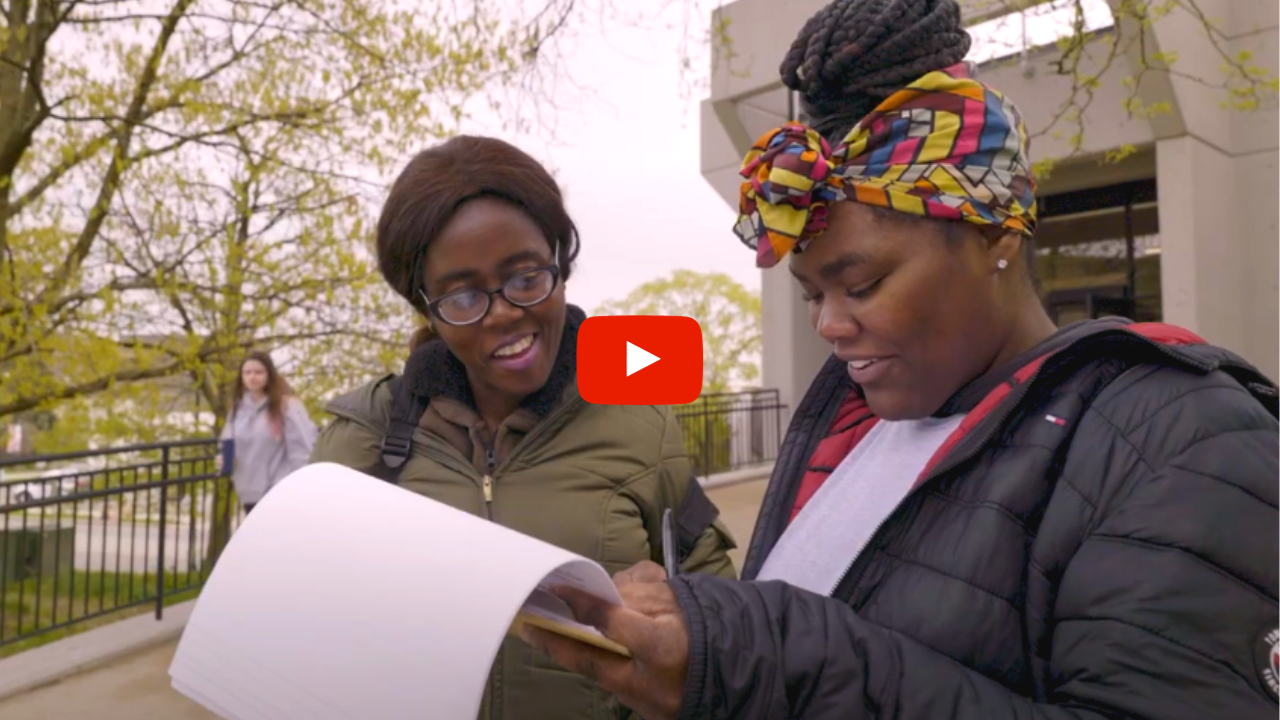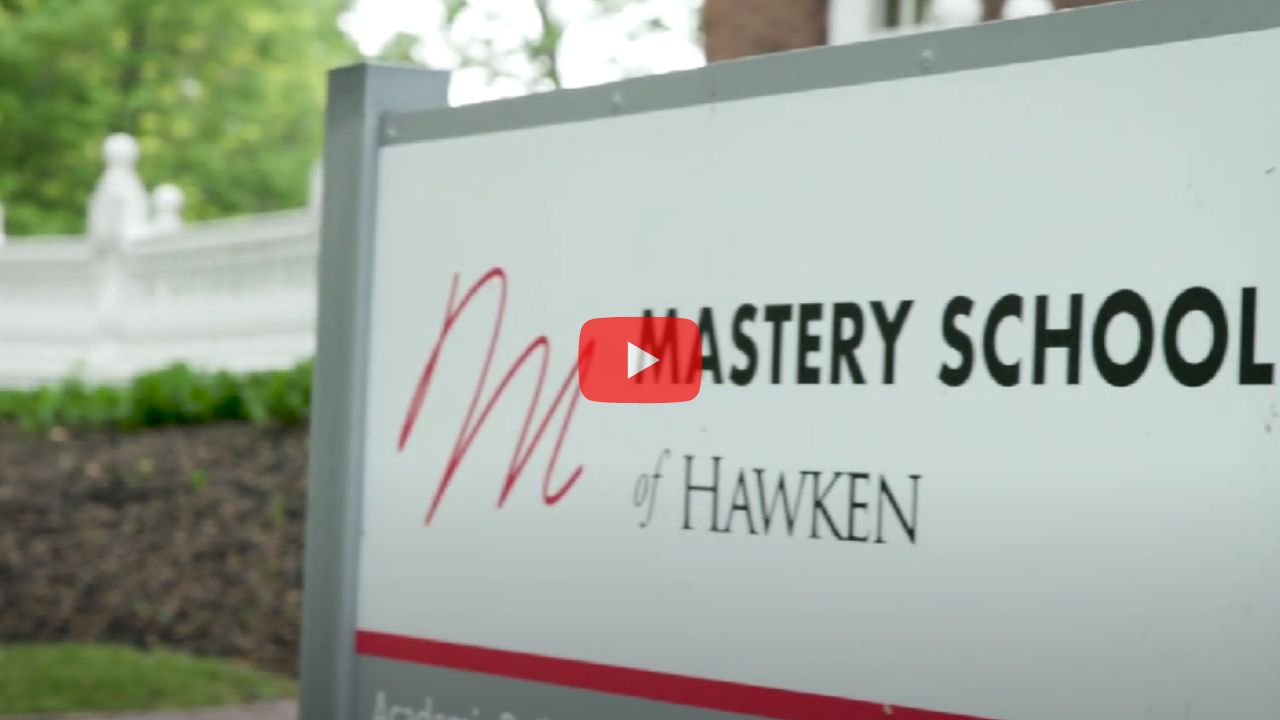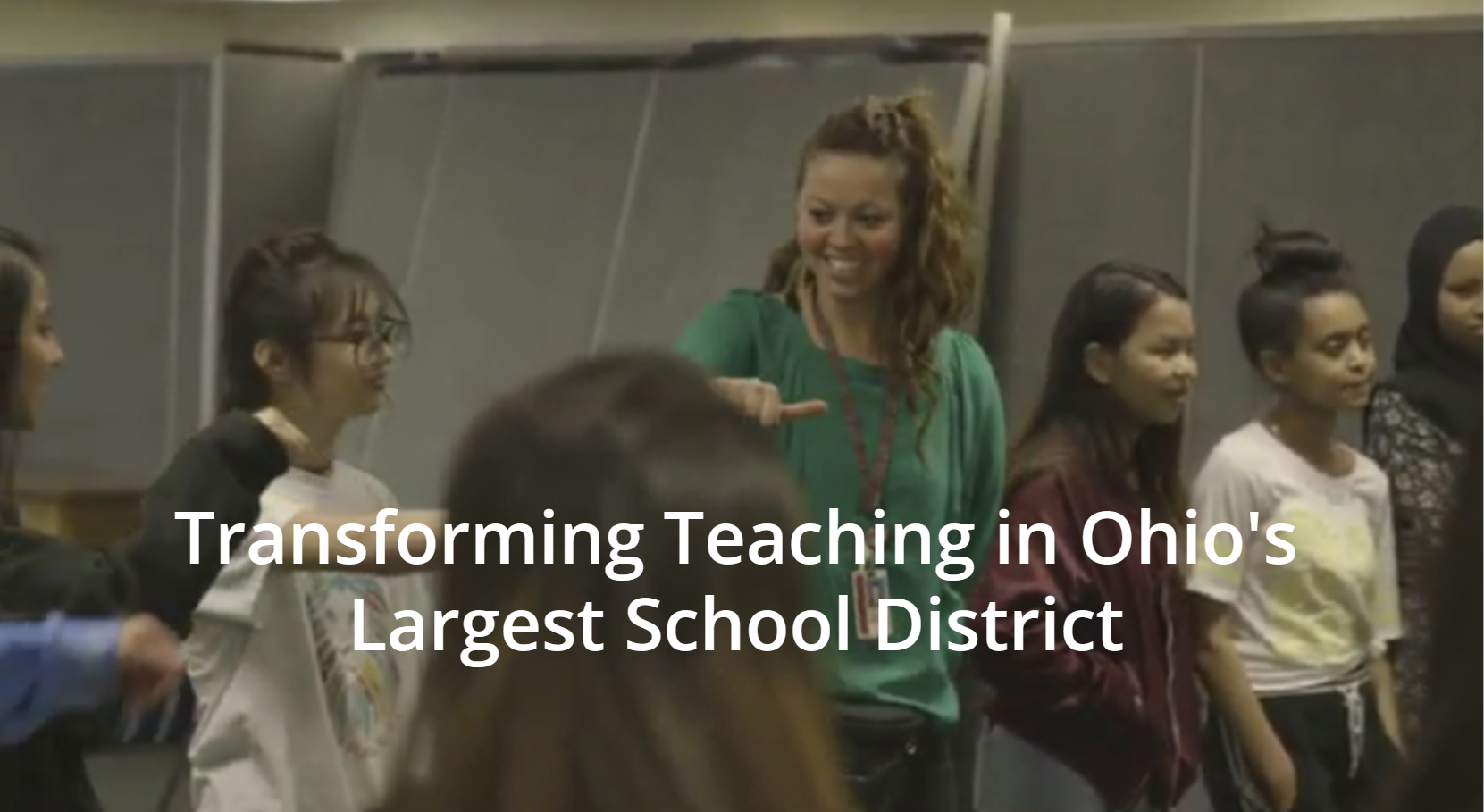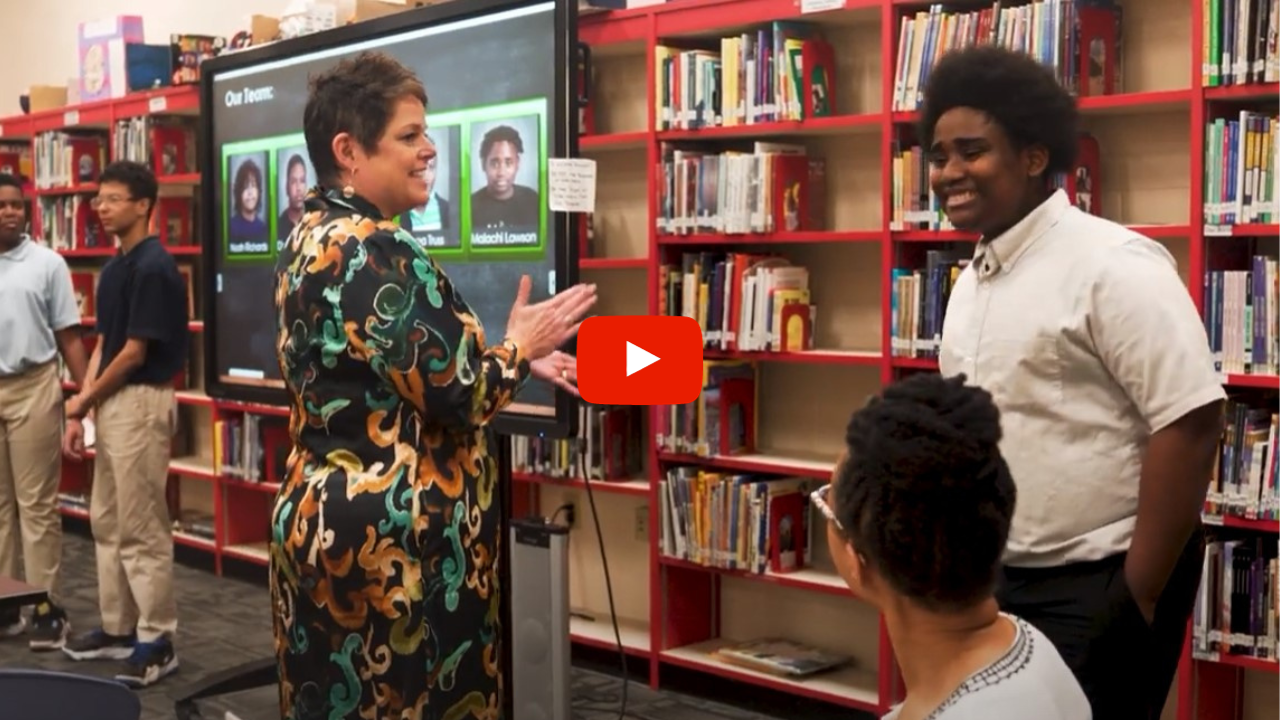In this episode, Alison Tanker explains the path that led her to the Assistant Director position at the Miller Institute for Entrepreneurial Studies at Hawken School. She shares her background in social entrepreneurship, international development, female empowerment and entrepreneurship education. She explains how she discovered that entrepreneurship can be empowering while working with social enterprises in the United States, the U.K., Latin America and the Caribbean.
Doris: You never set out to be a teacher, let alone a K12 teacher, a high school teacher. You never, ever thought you would do that. Why on Earth did you agree to let me hire you? Why did you say yes to doing this weird thing?
Alison: I know. It’s a good question. It is surprising to find myself in this space. I would have never imagined going through school, graduating, going out into the working world, that I would ending up working at a school.
Doris: Yeah, so what did you do? Like before our first conversation. Tell me, what were you doing?
Alison: Well, most of my background is in social entrepreneurship, and I’d studied that in school. And when I was in school, I ran a student business with a number of peers that was trying to create more employment opportunities in sub-Saharan Africa by promoting the sales of conscious, ethically-made, clothing.
Doris: Can you give an example? That’s so interesting.
Alison: Sure. It was a company actually founded by Bono of U2 and his wife, Ali Hewson, who wanted to have a fashion line that was ethically made, not in sweatshops. So they had all kinds of jeans and dresses and sweaters and all that.
But at my school, we were looking to have experiential learning opportunities for students. And our advisor was really helpful in making this connection to the company, where then what we did was buy blank T-shirts off of that parent company to screen print on campus for Greek life. student orgs . . .
Doris: And you were in college?
Alison: . . . locally on campus, who needed a T-shirt with their logo on it. We gave them an ethical option, instead of having a sweatshop-made tee, we had T-shirts that were made in sub-Saharan Africa, where the entire supply chain from the grower of the cotton all the way to the sewer of the fabric was kept, intentionally, to create jobs in the area.
So it was my first introduction into what it means to be a young changemaker and to feel really passionate about work and want to make some change in the world and know that that was possible. But I also loved, during those four years, that I got a real taste of what it is to be involved in a startup at each level.
First I was on the marketing team, and then I was helping with the sales, and then I moved to VP of operations, and then I was running the thing. Then we wanted to scale it. It was actually in that space that I really started to find some interest of “How do we take this to the next level? Cool if we sell 10,000 T-shirts at our campus. But if we can do that at 100 campuses across the U.S., that creates social change.”
So it was in that space that I started to connect with other people that were passionate and like-minded at other schools, and started to understand where my interest, specifically in entrepreneurship . . . and where I fit in the system.
That said, I also was doing an internship during the summer between my junior and senior year that led me down to Latin America, where I interned with a local Guatemalan company that was started by an Ashoka Fellow.
They were training local, mostly Mayan, women to go out and sell things like water filters, solar lamps, eyeglasses, things that people in rural areas didn’t have access to, but were very beneficial for their health or their economic well-being, and in turn, started to make some income for that female entrepreneur, who really hadn’t had work opportunities outside of the home prior to that.
I had done some work with them over the summer and really loved being in the trenches, that I was so close to the mission. As compared to the work I was doing with the startup in college, the mission was really distant. It was in Africa, and I was in a college in Ohio.
Doris: It was abstract.
Alison: It was, in a lot of ways. I was very motivated by it, but I wasn’t there to really witness the impact.
Doris: You weren’t touching it.
Alison: Right. So I was completely enthralled to be right on the ground level, working alongside the people. And with that, create an opportunity, I guess, in some ways. I emailed the leader of the group and said, “Hey, is there any opportunity to take a full-time role?”
It worked out that I could come down after graduation. So I started working for a few years locally, on the ground, with this organization – Community Empowerment Solutions. The coolest part for me was to watch these women come in, where they were completely timid, initially.
They were saying, “There’s no way I could ever have a business. I don’t know how to read and write. No one respects me. I’ve never worked outside the home. This could never work.” It was a locally-led initiative, so I was there to support the other Guatemalan leaders who were the ones really training these women.
They would sit there, and they would say, “You know, I felt the same thing about myself, but truly trust us. We’re going to be here to train you, and just come along for the first couple of trainings, and see if it works for you.”
Over time, within a matter of six months, these women are managing their inventory, doing basic math. They’re out there with these baskets of goods, you know, with water filters and their solar lamps, and they’re bringing products and services to people that really make an impact in their lives.
To watch these women start to develop this sense of self-worth, where they realized, “Wow, I can make an impact in someone else’s life. I can bring value to their world in something I’m doing. I’m bringing these products and services to them and bringing my own ideas to life about what other services or products people need.” It truly was empowering.
I knew that from going to college and studying this work and that even in my own experience of being involved in a startup, how empowering entrepreneurship can be, but to see that on the ground level and really witness these women step into their confidence was powerful.
From there, I also then went to Jamaica, where I was working in the Caribbean with another kind of incubator accelerator for entrepreneurs – The Branson Centre of Entrepreneurship – Caribbean. To see the patterns there again, where the entrepreneurs we were working with were in a much different stage of operation.
They were generally a year or two into their startup. They ranged from agra-based entrepreneurs doing egg farming, coffee farming, honey farming, all the way to your tech startups, who were doing app development, web design, things on that level.
We were there to help support them to be more sustainable, scalable, strategic in everything they were doing. In that space where I learned so much . . . I mean, small island economies are incredibly crazy and to help grow a startup and support them through that process was incredibly informative and exciting. But, again, to identify those patterns with how people were really understanding what skills they had, what strengths they brought to the table, what it was like to work with their team to bring something to life, and how that completely shifted their sense of self. And the impact they were therefore making in the community, where they could create some jobs for people but also really bring meaningful products and services into areas that don’t have access.
So all of this was happening, and I’m in my own place trying to think, “Where do I fit into all of this? This is just amazing, and I love everything this brings to the table.” I actually remember, I read a book that helped me reflect a bit more on my specific attributes. And some of the things that it brought out was that coaching and mentoring is actually really core to who I am, and I hadn’t considered that in the work I was doing.
Doris: It’s interesting to me that you didn’t get that until you read a book. That’s sweet.
Alison: I probably took one of those silly tests, you know, one of those “Check these boxes . . . “
Doris: Yeah, exactly. So funny.
Alison: Yeah, that was one of them. The other one was blank canvas creativity. Kind of the artist space was important for me. And then the other was enterprise control, or decision-making, strategic stuff on that level. Those are kind of the top that flushed out.
So I made the decision, at that stage, to actually come back to Ohio where I grew up and pilot my own business, Tigress, where I could work with girls in high school and college to really help them develop this entrepreneurial mindset and skill set.
And initially designed these workshops and coaching club opportunities, mentorship, to work with girls in dynamic ways that were very experiential, so that they could start to gain that confidence and go out there and really become passionate, creative, confident changmakers.
I knew it was very possible. I had witnessed it time and time again, and I really believe in the power of the entrepreneurial process, showing you how much you can add to the world, you know, bringing any idea you have into life.
That process completely transforms what we realize is possible for us. So I was doing this in Cleveland for a couple years, about a year and a half, actually.
Doris: How did that go?
Alison: Well . . .
Doris: I mean, how did it go? Because I think that’s an important part of the story.
Alison: That is part of the story. That’s true.
Doris: Because you have this lofty mission.
Alison: That’s right.
Doris: And then you’re here trying to sell to schools, right?
Alison: And to be honest, I came back pretty naïve. Here I had been working in a lot of other countries that really valued entrepreneurship. This was core to the development strategy of the country, and it was almost kind of the starting point. If you were doing international development work, entrepreneurship, women, that was kind of where you started.
Doris: Yeah, microloans . . .
Alison: You got it, right.
Doris: Sure.
Alison: So I came back and was really shocked to see my hometown in a developed nation was kind of behind the curve, actually, on a lot of this.
Doris: In what ways?
Alison: Well, I went back into a number of schools. Initially, my goal was to really partner and run workshops within these schools, both high schools and colleges. And imagined that all of the schools would be very much believers in experiential entrepreneurship education, that we needed to create more space and opportunities for women in this space, and that a workshop like this would make perfect sense, right?
Doris: Come on in, let’s do it. Yeah.
Alison: Well, what I found was actually a lot of the schools were still very focused on business plan writing and pitch competitions and really didn’t understand what I was talking about, in a lot of ways. I felt crazy, and I remember, actually, the entrepreneurs I worked with in Jamaica always would say that. They would say, “A fair part of coming to this hub is that we can be around a bunch of other people that are called ‘crazy’ all the time.”
I was starting to feel that way. I thought, “Wow, I’m crazy talking about all the important skills that are fostered through this entrepreneurial experience and everything that can come from this.”
So as I was making some headway with some schools who were a little bit more open and risk-taking and willing to try out what a workshop might look like and invite some of their female students. The growth was slower than I had hoped, and I knew it was going to be an uphill battle, for sure. But that didn’t stop me. I was still very much . . . I mean, I truly feel like it’s part of my purpose and my spirit and who I am, that I’m meant to be doing this work. And as such, I kept pushing forward and emailed a number of people.
But I had come across an article about this Hawken School that apparently was doing some amazing stuff in entrepreneurship education and was local to my town. I thought, “Are you kidding? How are they not on my radar? Where are . . . ?”
We tried to set up a few conversations. I remember that the email exchange was going back and forth, and I know your world now, so . . .
Doris: You were very persistent. From my perspective you kept emailing me, “I want to talk to you about doing an entrepreneurship workshop.” I didn’t know you or any . . . so from my perspective, it was like, “Okay, thanks, well . . .”
Alison: “We don’t need it.”
Doris: “We don’t need it.” Yeah, which I’m sure you were getting from a lot of other schools also, for different reasons.
Alison: For different reasons, exactly. So I kept emailing . . .
Doris: You were so persistent that finally I felt guilty, remember? Yeah, that’s really the truth of it. That’s so funny. You were awesome.
Alison: So we met for breakfast, and I remember about 15 minutes into the sales pitch that I’m giving you about running workshops for your female students, you turned the table, and you said . . .
Doris: “Can I change the conversation?”
Alison: Exactly, right. And I remember it was really amazing to me as we talked through both of our backgrounds and what we were motivated about, but, specifically, really the philosophical alignment that we have about the work we do. That was the first time I felt like I had talked to anyone since starting my business that totally understood what I was talking about, that really was on the same page. Here you were doing this inside of an institution, and making a lot of headway, really. But it was still a school, and I thought, “Oh, my, no, I didn’t come into this conversation with any interest in working inside of a school.”
Doris: Yeah, I mean we had just decided not long before that I was going to hire somebody to join our team, and Tim and I had been talking about “What are we looking for? What’s important?” And literally within days of meeting you, that’s what he and I had been talking about. Then you were doing your sales pitch, and the wording that you used, how you described what motivates you, all the things you’re talking about, I realized in however long it was, 15, 30 minutes, “Wow, everything this young woman is saying is exactly the same philosophy theme . . . ” It is. You have the exact same philosophy about what all this is for, and how it’s empowering. And I thought, “Wow.” And I said, “Can I change the conversation? I’d like to talk to you about coming and joining our team.”
Alison: And I think it was a few months, really, that you continued to open me up to this opportunity, because I wasn’t very willing, initially, to let go, or what I thought I was going to have to let go of with the company I had built.
I thought, “Oh, my gosh, I feel like I’m shedding layers of my identity by walking away from this. It feels awful that I’ve been forming these partnerships with a number of schools, and now I’m going to walk away from that to come . . .”
Doris: Well, what you said to me was that you had had a really rough time getting any kind of traction.
Alison: Absolutely.
Doris: That you were just starting to have a handful of schools who were willing to try a workshop, and it didn’t feel like the right time.
Alison: That’s right.
Doris: Then in addition, you said to me that . . . you talked about your own experience in high school and that you just don’t think of yourself as a teacher.
Alison: That’s it. I mean, that was a really big hurdle for me to get over, because school, for me, was not necessarily a place I thrived growing up. I did well in school, but I had to work really hard to do well, because the way that I was taught wasn’t natural to the type of learner that I was.
It wasn’t actually until I was in college and a part of a really unique program that allowed me to design my own major and take some control over my learning and craft a course of study that was aligned with what I was passionate about, but also felt intentional.
I understood the importance of having that economics class alongside an anthropology class, so that I could really have a sense of the world, of which I was trying to then create some solutions for. So as we were discussing the school, specifically here and the progressiveness and the goals that you had building a program like this.
I realized the opportunity truly to come in and address the gaps in our educational system for those kids who aren’t thriving. I mean, I think about myself in high school, how much I would have loved a program like this, and how much I would have thrived and recognized at an earlier age the value I have that I bring to the world.
Doris: Which is a huge piece.
Alison: It is, I mean, I think about . . .
Doris: Took you years to get there, right?
Alison: Years. I remember, it was like my junior year of college, and we were doing these assessments about our skills and whatnot, and it was the first time that I realized my creativity was an asset. I always thought, “Well, I’m not an artist per se. I don’t draw or paint.”
I was always a performing artist, but I didn’t understand that that was useful in a career path, that that was useful to any kind of profession, because it felt so siloed, always, growing up. You have art class here, you have math class here, you have history . . .
Doris: Dance classes after school.
Alison: Exactly. So when I was really recognizing, “Wow, I have a number of skills that are really useful to this world,” later in my educational experience, to imagine we could create that opportunity for students earlier, at very formative ages where they’re constantly being bombarded by messages from society, the media, family, friends, and especially colleges, that we give them sort of a safe space to say, “Figure yourself out,” right? “Have an opportunity to fail a little bit, iterate, pivot, figure out what you look like on a team, how you work with others, and really what you bring to the world.”
I mean, it was a huge opportunity. Although in some ways, I thought, “Okay, I have the opportunity to work with a number of schools, or I could work inside of one.” Another big selling point, really, for me, was that your mission is a lot bigger than just one course, per se that the mission, your purpose, I feel like, your passion is surrounding educational reform and using this as a model to get there. It was new for me, because I had always seen entrepreneurship as a vehicle for economic development, for female empowerment.
But to then know entrepreneurship education could also be used to create some incredible changes in education was exciting, and that you’re already doing that as well. That you had established this network of other educators nationally, even globally, who were wanting to learn how to develop a model like this at their school.
Doris: Implementing it, yeah.
Alison: And that you’re leading workshops with 90-some other entrepreneurship education teachers and growing has been really encouraging, to know that a number of educators acknowledge that the system is broken and are taking active steps to implement things that are really transformative for students.
So a number of those pieces kind of fell into place, and you coaxed me a little bit more and told me to put my faith in it and really trust that I could make a broader impact.
I also think I’m making a deeper impact on a lot of levels. But, you know, here I was within my specific business before this, trying to negotiate for a two-day workshop, which would end up being 16 hours, maybe, if I was lucky.
Doris: And that was huge success if you got . . .
Alison: Exactly, because a lot of the schools said, “There’s no way we can even give you a full weekend, no.” To know that on a weekly basis, we work with our students for . . .
Doris: However many feels right?
Alison: Yeah, you know, significant hours a day means that the depth we can get to with these students really moves the needle for their experience. That’s very exciting for me.
Doris: Yay. Well, I’m thrilled that we were able to get you to have faith and jump in.


